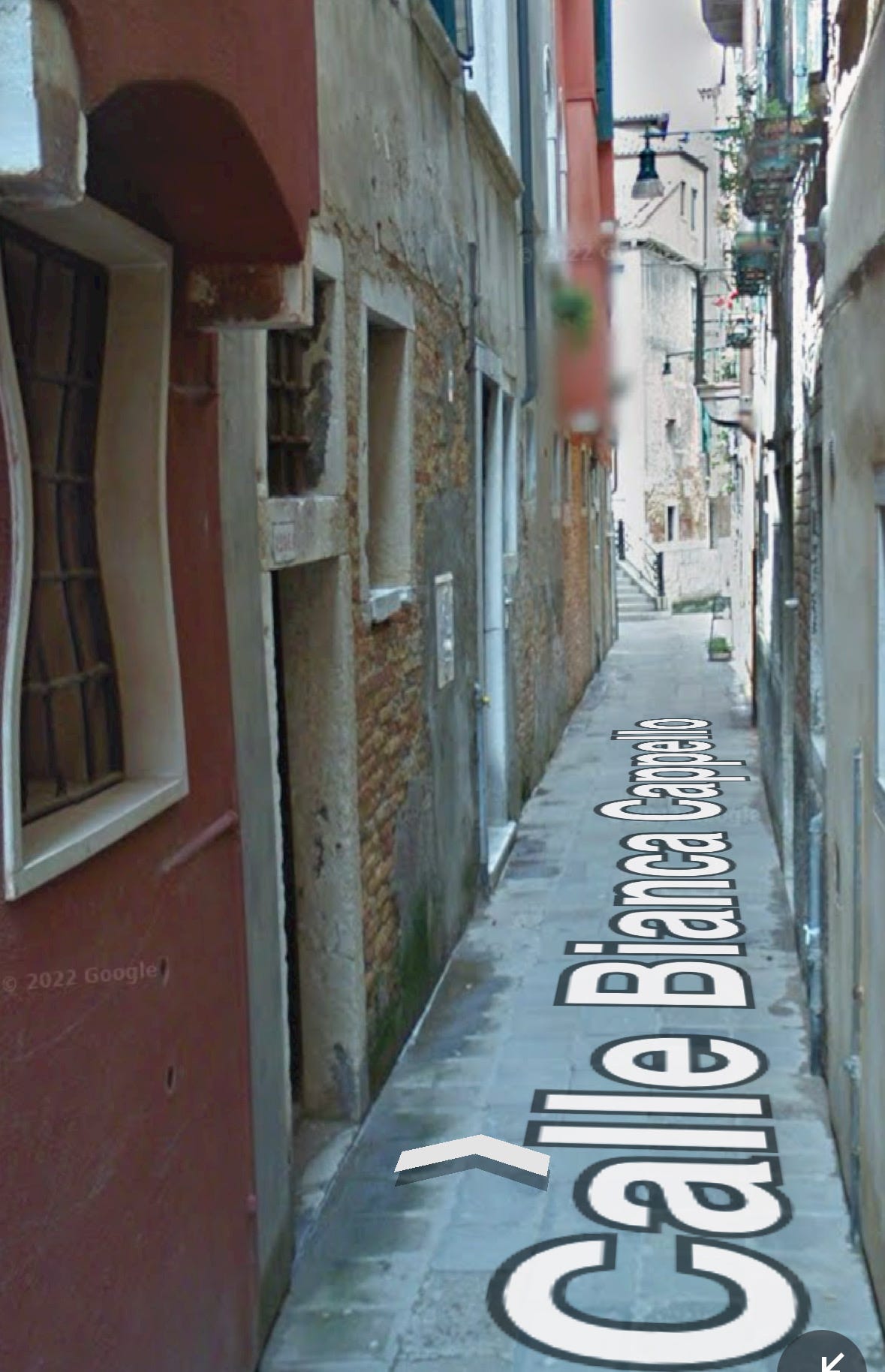Venice, AI, and the Weight of Wealth
For my wife…
Traveling through Italy—Rome, Venice, and soon Florence—I see more clearly how America mirrors the past: cycles of capitalism, inequality, and displacement repeating like echoes from ancient empires. Learning about Pope Leo XIII’s response to the Second Industrial Revolution made me realize how today’s AI revolution is another turning point—one that threatens the cognitive class as mechanization once did the physical. I feel the tension firsthand in the stories of locals pushed out by tourism, and in my own shifting relationship with money, status, and travel. Maybe this is humanity’s “second half of life,” and the only real choice now is whether we meet it with fear and isolation, or with love, presence, and trust in the Light.
Today I'm in Venice. Tomorrow I'll be in Florence. Two days ago I was in Rome.
It is said, and I agree, that it's easier to see your homeland from afar than when you are actually in it.
America today is like America 100 years ago and 100 years before that. America is like Venice which is like Rome 1000 years ago.
I learned on my Vatican tour that it is possible that the new Pope took the name Leo because the last Pope Leo reigned during another time of great change: the Second Industrial Revolution.
This is what ChatGPT says about that Pope and that time:
The Second Industrial Revolution (roughly 1870s–1914):
Characterized by:
Mass production and assembly lines
Electricity and the internal combustion engine
Telecommunications (telegraph, telephone)
Chemical, steel, and oil industries
The rise of corporations and urban working classes
It’s during this second wave [did you know the industrial revolution we think about was actually the second wave of industrialization? I didn't.] — particularly the late 19th century — that Pope Leo XIII reigned. His 1891 encyclical Rerum Novarum directly addressed the social fallout of these transformations:
Unsafe working conditions
Child labor
Exploitation
Massive wealth inequality
The collapse of traditional community structures
He wasn’t responding to the quaint world of steam engines — he was responding to the Fordist, electrified, brutally capitalistic world that was emerging fast.
“Brutally capitalist world.”
But in this era the change isn't mechanical. The change is AI.
ChatGPT goes on to say:
Why It Matters in Context of AI
That’s why comparing Leo XIII’s moment to our current AI moment makes sense:
Then: Mechanized labor disrupted the physical workforce
Now: Algorithmic labor is disrupting the cognitive workforce
Then: Global migrations, inequality, and social unrest
Now: The same, but on digital steroids
So when Pope Leo XIV references Leo XIII in name, he’s signaling that he sees a comparable moral, social, and existential upheaval — and he aims to offer a moral compass for it.
It is said that we live in a post-capitalist era. That we are looking at a time when capitalism has reached its end. I think we are just looking at capitalism and feudalism and the way it has always been.
Our gondola driver was a sweet, young man who opened his heart to us. He told us that his previous guests were rude, inconsiderate and demanding (and also Indian). At one point they yelled for him to sing. I don't know if he's one of those kinds of gondoliers. He didn't sing for us.
I've seen plenty of rude, loud, and angry Americans on my trip. The Indians, while they seem to walk quite fast, haven't jumped out at me as anything extra. Except that they are a darker shade of brown. They're easier to blame for our troubles.
There is a public transportation strike coming to Italy this Friday.
Reasons for the strike
Friday's general strike has been called by grassroots trade unions including USB, CUB, SGB, FISI and FLAI.
The unions are asking for less funding for military spending and more investment in health, education, transport and safety in the workplace.
The protest also focuses on the demand for wage increases, contract renewal, reduction of working hours and opposition to privatisations and job precariousness.
There is also quite a lot of talk locally about how excessive tourism is negatively impacting locals.
Residents in Spain and several other popular destinations in Europe protested against mass tourism Sunday, saying a flood of summer visitors is driving up housing costs in their cities and pushing out locals.
Some of the protesters in Barcelona and on the Spanish island of Mallorca sprayed tourists with water guns.
The protests were part of the first coordinated effort by activists concerned with the ills of overtourism across southern Europe's top destinations. While several thousands rallied in Mallorca in the biggest gathering of the day, hundreds more gathered in other Spanish cities, as well as in Venice, Italy, and Portugal's capital, Lisbon.
As kindly as he could, our gondolier said he was born and raised in Venice. But he had to recently move to the mainland (where he is building a house) because he could no longer afford to live in his home city. All because everything is being given to the tourists.
We are staying in a two bedroom apartment on a tiny little cobblestone street for $250 a night. We thought that was quite a good deal. But that equates to $7500 a month. As an apartment owner, you would be a fool to rent to anyone other than tourists. (Rocky thinks gps has helped enable this trend. She said when she was in Venice in college she would get completely lost in this maze of wonderfully charming yet baffling streets.)
So now I’ve helped push people like my gondolier out of Venice and he's taking the money he makes from tourists and is probably pushing out someone else as he gentrifies the area he is moving into.
And so it goes.
I deeply feel the shame of my contribution to this income war. Yet I also recognize that I am spraying money all over Italy in my wake. Would it be better to give all my money to Disney World?
I saw a sign yesterday thanking some American charity for all the millions of dollars they have spent on renovating buildings throughout Venice.
A wealthy friend recently returned from Copenhagen. She commented that international travel had lost its luster for her. She was sitting in yet another “interesting” city going to yet another “interesting” museum. How many times do you have to do that until you get it?
I asked ChatGPT to remind me of this Richard Rohr topic:
Richard Rohr, in Falling Upward: A Spirituality for the Two Halves of Life, explores the profound shift in values and desires that often comes in what he calls the “second half of life.” The part you’re referring to relates to this inner transformation where things like money, travel, status, and achievement—which may have held great allure in the first half—begin to lose their grip. Rohr isn’t dismissing these things as inherently bad; rather, he’s pointing out that they often serve as scaffolding for building a necessary but limited identity in the first half of life.
Here’s the core idea:
In the first half of life, we focus on building the “container”—our identity, career, family, achievements. We are driven by external goals, validation, and experiences. Money and travel are exciting because they expand our world and reflect our success.
But as we encounter suffering, loss, failure, or simply the passage of time, a deeper yearning starts to awaken. In the second half of life, Rohr says we become more concerned with what fills the container—our soul, meaning, relationships, compassion, union with the Divine.
That’s when things like acquiring more wealth or racking up passport stamps begin to feel hollow. Not because they’re meaningless, but because we’ve outgrown the illusion that they can ultimately satisfy our deeper hunger.
Rohr writes:
“In the second half of life, we are not preoccupied with climbing, building, or collecting. We are more concerned with getting rid of baggage, simplifying, and letting go.”
In short, the shift he describes is from ego-driven goals to soul-driven goals—from outer adventure to inner journey. So when he mentions no longer finding money and travel interesting, it’s not about becoming cynical; it’s about finding greater joy in presence, wisdom, love, and service.
*****
Maybe AI is ushering in a second half of life for us. Maybe we are learning that “climbing, building or collecting” is fun for a while. But if you do it long enough you realize that it doesn't hit the way it used to. And so you learn to stay at home with your friends and family in a warm, inviting community that you know and love.
And in doing so, money trickles down even less than it does now. The economic divide widens. Wealthy people move to quiet, remote, wealthy villages because they all have Starlink satellite internet access and can live in the middle of nowhere as drones fly in their food, medicine and Amazon orders.
We feel ashamed of our wealth so we retreat into enclaves of economically-related nomads. I have a wealthy friend who is preparing to move from Akron to Spain because the political climate of Ohio and the United States makes her afraid. Money creates a shield of mobility.
It is not a coincidence that Donald Trump exists at the same time Pope Leo XIV. We are witnessing the balance of the universe in proportional parallels. One message is that of isolation and division. “Close the city walls before the barbarians take over.” The other message is “open your heart and life to those who suffer.”
I no longer believe in “right or wrong”, “good or evil”. I believe in the light and the dark, the death and the rebirth. We can't have Jesus without the crucifixion. And so we must give thanks to those who kill, hate and cause suffering. They create the stage on which light can shine.
Listen to yourself. That is your Dharma. Be true to that and nothing else. You are needed now more than ever. The times are changing. The balance is shifting. That's why you feel uneasy and afraid. But I assure you, it will balance yet again. HOW the balance comes is up to us. Societies do die. Civil wars do happen. Your participation in the balancing will shape the outcome of this time.
I am on the side of Light. I believe the answer is to love more, be less afraid, trust in God. If that message speaks to you, go and be not afraid. Your time is now. It won't come again. Not like this.
I love you.
Sage






